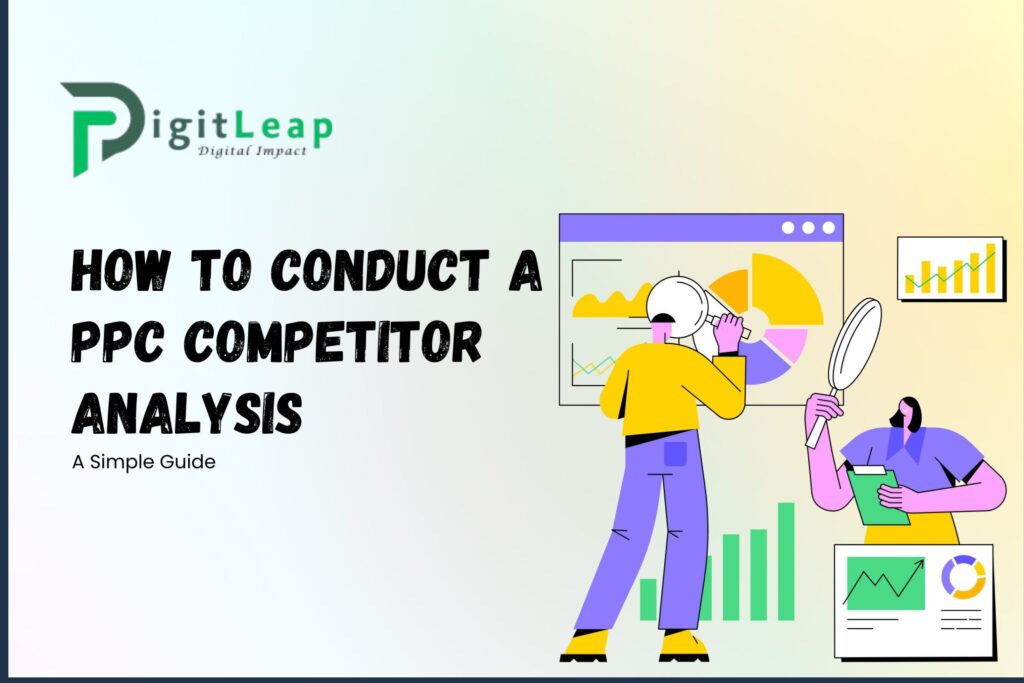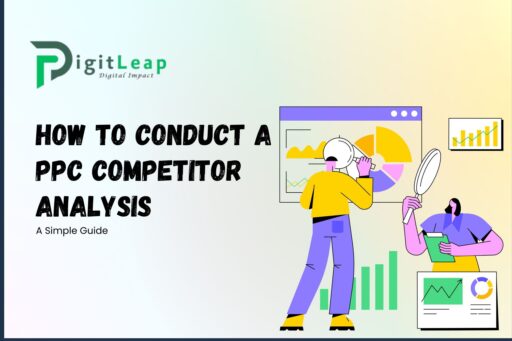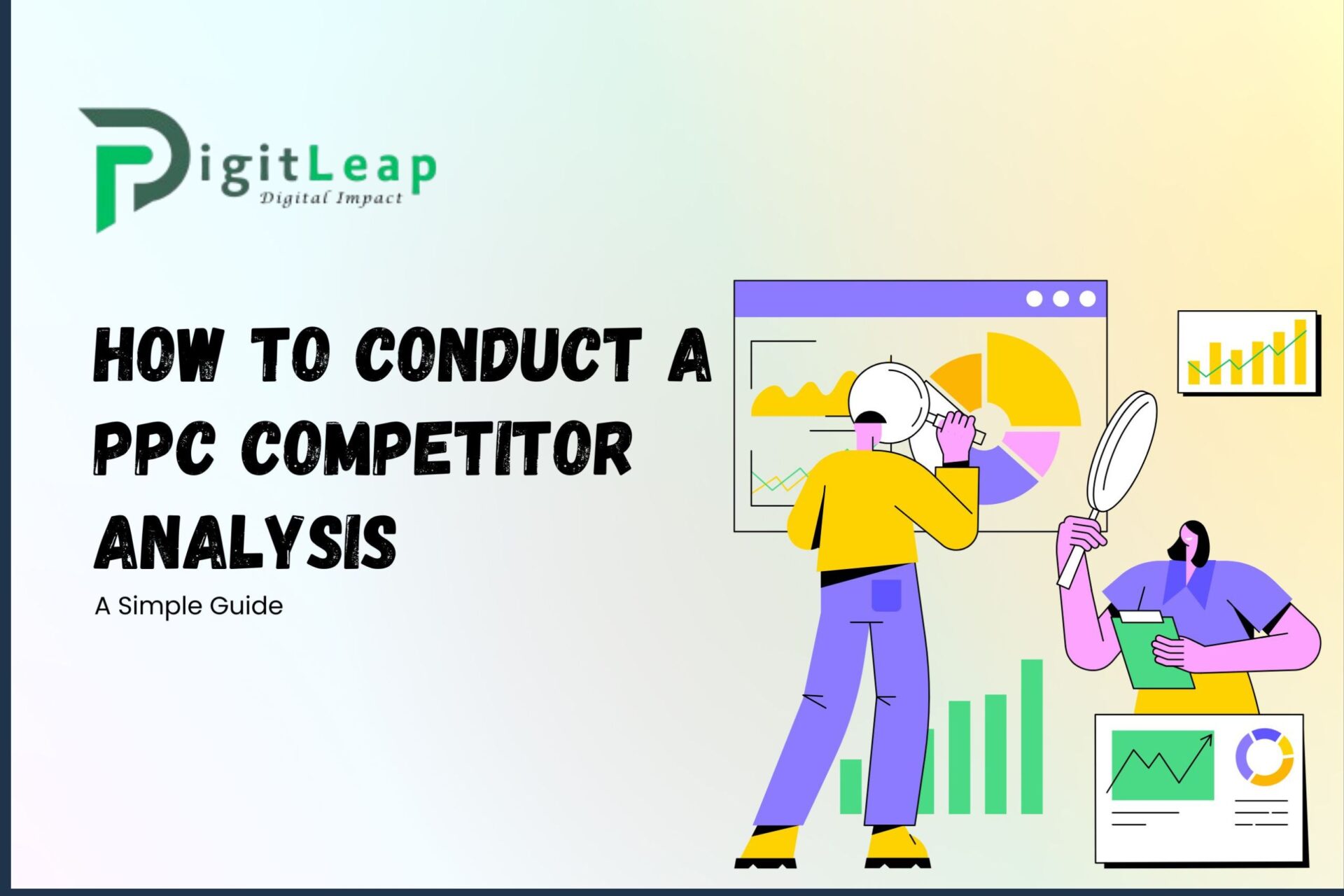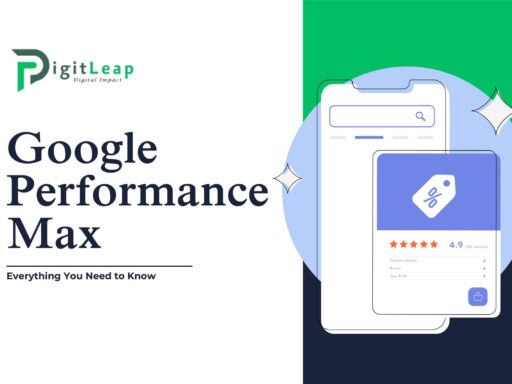How to Conduct a PPC Competitor Analysis: A Simple Guide
Pay-Per-Click (PPC) advertising is highly competitive, and understanding what your competitors are doing can help you refine your own strategy. A PPC competitor analysis allows you to discover their top-performing keywords, ad copy, landing pages, and bidding strategies.
This guide will walk you through how to conduct a PPC competitor analysis step by step, ensuring you stay ahead in the game.

Step 1: Identify Your PPC Competitors
Before diving into analysis, you need to know who your competitors are. You can find them by:
- Searching for your target keywords on Google Ads and noting the top advertisers.
- Using competitor research tools like SEMrush, SpyFu, Ahrefs, or Google Ads Auction Insights to identify direct competitors.
🔹 Pro Tip: Your PPC competitors may be different from your organic SEO competitors, so don’t assume they are the same.
Step 2: Analyze Competitor Keywords
Understanding which keywords your competitors target helps you optimize your own strategy. Use tools like:
- Google Ads Keyword Planner – Find keywords competitors are bidding on.
- SEMrush or SpyFu – Reveal paid keywords, CPC, and ad history.
- Auction Insights Report (Google Ads) – See competitors competing for the same keywords.
What to Look For?
✅ High-performing keywords with low competition and high conversions.
✅ Negative keywords competitors might be ignoring.
✅ Long-tail keywords that can reduce CPC while maintaining quality leads.
Step 3: Evaluate Competitor Ad Copy
Analyzing your competitor’s ad creatives can provide insights into what works in your industry.
How to Analyze?
- Google Search Ads – Look at competitor headlines, descriptions, and CTAs.
- Facebook Ad Library – Check competitor ad creatives for social PPC campaigns.
- SEMrush Ad Research Tool – View past and current competitor ads.
What to Focus On?
✔️ The structure of their ads (Headlines, Descriptions, Ad Extensions).
✔️ Their Unique Selling Proposition (USP) – What makes their offer attractive?
✔️ Their Call-to-Action (CTA) – Are they using words like “Buy Now” or “Get a Free Quote”?
🔹 Pro Tip: Look at A/B tested ads (multiple variations) to understand their experimentation strategy.
Step 4: Examine Competitor Landing Pages
Your competitors’ landing pages play a crucial role in PPC success. Analyze their:
- Design and layout – Is it minimalistic or packed with information?
- Page speed and mobile-friendliness – Are they optimizing for better conversions?
- Lead capture forms – Are they using long or short forms?
- Trust signals – Do they have testimonials, reviews, or security badges?
Use tools like SimilarWeb or Ahrefs Site Explorer to analyze landing page performance.
🔹 Pro Tip: Look for heatmaps or session recordings (via Hotjar) to see how users engage with your competitors’ pages.
Step 5: Monitor Competitor Bidding Strategies
Bidding plays a huge role in PPC success. Your competitors may use different bidding strategies such as:
- Manual CPC – Manually setting bids for keywords.
- Target ROAS (Return on Ad Spend) – Focusing on revenue optimization.
- Maximize Conversions – Bidding higher for better conversion rates.
How to Monitor?
- Use Google Ads Auction Insights to check Impression Share and Ad Position.
- Track Cost-Per-Click (CPC) trends over time to adjust your bidding strategy.
🔹 Pro Tip: If competitors are outbidding you, improve your Quality Score (better ad relevance, CTR, and landing page experience) to reduce CPC.
Step 6: Track Competitor PPC Performance Over Time
PPC campaigns are not static—competitors are always testing and adjusting. Use tools like:
- Google Trends – Track PPC trends over time.
- SEMrush Advertising Research – Monitor changes in competitors’ ads and budgets.
- Facebook Ads Library – Check how often competitors launch new campaigns.
Regularly analyze what’s working and what’s not to improve your PPC strategy.
Final Thoughts
A PPC competitor analysis isn’t about copying your competitors—it’s about learning from them and optimizing your own campaigns.
Key Takeaways:
✅ Identify your real PPC competitors.
✅ Analyze their keywords, ad copy, and landing pages.
✅ Understand their bidding strategies.
✅ Monitor performance changes over time.
✅ Improve your own PPC strategy based on data insights.
Would you like help setting up a competitor tracking system? Let me know! 🚀






